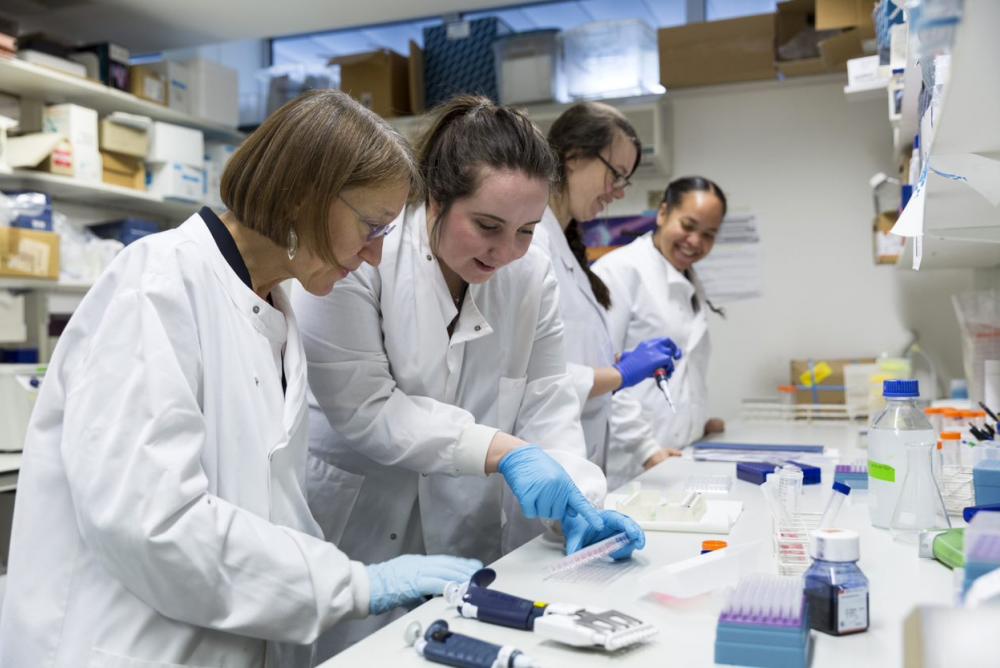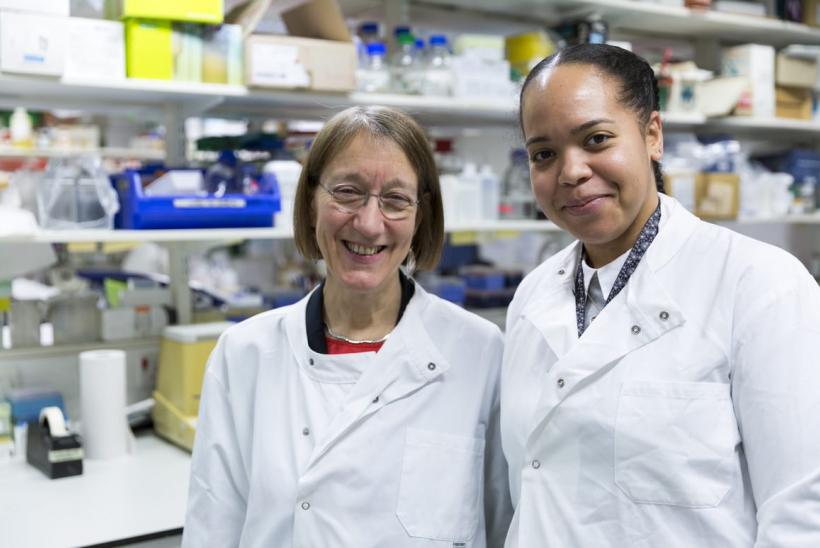Childhood arthritis: a joint project
Professor Lucy Wedderburn leads the Childhood Arthritis Response to Medication Study (CHARMS), which has been supported by GOSH Charity and Sparks.
The study, which has brought together teams and findings from across the UK and around the world, hopes to gain a better understanding of the causes of arthritis in children, and how best to treat those affected.
What is juvenile idiopathic arthritis?
Juvenile idiopathic arthritis (JIA) is the name for a range of conditions that all have one symptom in common – inflammation in one or more joints before a child turns 16. The condition is caused when a child’s immune system goes into overdrive and attacks their own tissues.
Around one in 1,000 children in the UK have JIA* and the condition can be very variable.
As Lucy Wedderburn, Professor in Paediatric Rheumatology at UCL Great Ormond Street Institute of Child Health and a Consultant at GOSH, explains:
“For children at one end of the spectrum, it can be a very severe disease which used to be called Still’s disease.
"Back when I was training, there were children who still died of that condition. It’s a very severe form of the disease that affects many parts of the body and has many complications. But at the other end of the spectrum, a child might have arthritis in just one joint. In that case, we could give them an injection, they could get better and it may never come back.”
What is CHARMS?
CHARMS is a study that aims to help predict which children will respond well to certain JIA medications, and which won’t. This would help to choose the right treatment from the beginning, so doctors would know which children will benefit from standard treatments, and which need to be fast tracked onto more powerful treatments.
The CHARMS team at GOSH has now successfully introduced the first ever test to determine how a patient will react to different drugs. This simple blood test gives parents of children with JIA an indication of their child’s chance of getting better on the medication methotrexate. Having this knowledge helps doctors and families to make a more informed decision about future care.
A nationwide project
Reaching this point wouldn’t have been possible without collaboration. For the past 10 years, the team at GOSH has been working with a team in Manchester, who lead on the genetics side.
CHARMS involves seven hospitals across the UK, and Professor Wedderburn highlights the importance of having a diverse set of patient data to work with: “We’re very aware that GOSH patients may be at the severe end of the spectrum, and we need to include children with all forms and all levels of severity of JIA.”
Data Manager and Study Coordinator Cherelle Allen manages the study across all seven centres, collecting data and samples, and conducting follow-ups with the families involved.
The work taking place in other sites across the UK contributes to part of the study looking into methotrexate and genetics. “They supply us with DNA taken from a child who has gone on to take the drug methotrexate. At GOSH, we’re looking at a wider range of medications and our samples are a bit more in depth. It’s easier for us to track a child’s progress and gather more patient information.”
A worldwide project
JIA affects children all over the world and there are many projects researching the causes and potential treatments.
“It’s a small field, so we already knew that colleagues in other countries, such as the Netherlands, were doing similar things to us," explains Professor Wedderburn.
"We reached out to them and they shared some of their information and samples, so we could look at genetic information from a large number of patients. This type of study needs lots of cases, and in the end, 800 children worldwide took part in the genetic study for CHARMS.“
“We still need to gather more data, but we did identify a set of genes that seemed to influence the failure or success of a drug, which is exciting. We’re now at the stage where we could start to validate those findings.”
Progression to CLUSTER
Following the success of CHARMS, Professor Wedderburn and colleagues have recently been awarded an incredible £5 million by the Medical Research Council and Arthritis Research UK for a new project: CLUSTER.
CLUSTER is a UK-wide consortium of researchers who will look at personalised treatments for JIA and uveitis, an eye condition associated with JIA. Uveitis is a serious condition that can cause children to become blind, so diagnosing patients early is crucial.
Also supported by some additional funding from GOSH Charity, the project brings together scientists from Manchester, Liverpool, Cambridge, Bristol and London. It will build on the work conducted as part of CHARMS and will develop the research by gathering more patient data and exploring the causes and treatment of uveitis.
Over five years, the project aims to identify which children are at risk from uveitis, predict long-term outcomes for these children, help doctors identify the best treatment, and identify new treatments with fewer side effects.
*Dr Kathy Bailey. 2014. What is JIA? [ONLINE] Available at: jia.org.uk/what-is-jia-. [Accessed 16 May 2018].



